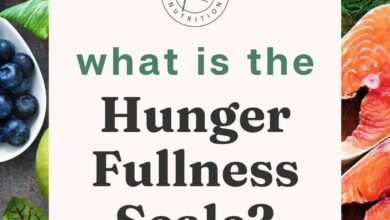A Comprehensive Guide to Vitamin C Supplements

Vitamin C is a well-known antioxidant nutrient with a wide range of functions in the human body, including collagen synthesis, wound healing, protein metabolism, synthesis of neurotransmitters and L-carnitine, and immune system support.
Though it’s not terribly difficult to obtain adequate amounts of this nutrient from a whole food, nutrient-dense diet, sometimes a little extra might be warranted.
So, you decide to seek out a quality vitamin C supplement, only to discover that there are about a gazillion options to choose from at your local grocery or health foods store.
The following article seeks to clarify a little bit about the forms, sources, delivery methods, and dosages of vitamin C supplements on the market in order to make informed decisions for yourself or your clients.
First, let’s look at the most common forms and sources of vitamin C supplements you might encounter.
Ascorbic Acid
Vitamin C and L-ascorbic acid are considered to be synonymous. Most supplements you will encounter contain ascorbic acid from synthetic or natural sources, which are generally identical in the molecule’s shape and biological activity.
The molecule ascorbic acid can be oriented in two ways: with the atoms rotating to the left (L-ascorbic acid) or rotating to the right (D-ascorbic acid). What is important to know is that in nature, plants, bacteria, and animals with the ability to produce ascorbic acid that rotates to the left. Humans, who cannot produce ascorbic acid, also use the L form.
Natural ascorbic acid occurs in foods, particularly fruits and vegetables like strawberries, kiwi, papaya, citrus fruits, and all types of peppers. For “natural” vitamin C supplements, ascorbic acid is made by allowing certain bacteria, like Saccharomyces cerevisiae, to ferment a sugar substrate, like glucose or sorbitol.
Synthetic ascorbic acid is typically produced industrially by a method called the Reichstein process, which uses chemical and microbial steps to convert D-glucose to L-ascorbic acid. Glucose for synthetic ascorbic acid typically comes from corn, which can be heavily processed and is often genetically modified, so consider the quality and source of the ingredients when choosing this form of supplementation.
As the name suggests, ascorbic acid is acidic. Therefore, some people may be sensitive to large doses, perhaps experiencing gastrointestinal discomfort or diarrhea. If this is a concern, the next form might be gentler on the gut.
Mineral Ascorbates
Mineral ascorbates are a salt consisting of an ascorbate ion (negative charge) bound to a mineral ion (positive charge). Most often, the mineral used in ascorbates is sodium or calcium. Other ascorbates may contain potassium, magnesium, zinc, molybdenum, chromium, manganese, or a combination of these.
Ascorbates are ascorbic acid minus an acidic hydrogen atom. Losing the hydrogen makes this form of vitamin C neutral in pH, therefore mineral ascorbates are also known as buffered vitamin C. They are formed by reacting ascorbic acid with mineral carbonates, like calcium carbonate or sodium bicarbonate.
An important thing to remember when choosing a vitamin C supplement in this form is that the mineral is also absorbed, and contributes to your daily calcium, or other mineral, intake.
Vitamin C with Bioflavonoids
In nature, vitamin C comes packaged in with a whole lot of other nutrients, including fiber, phytonutrients, and other vitamins and minerals. Some vitamin C supplements seek to mimic nature’s packaging by including polyphenolic compounds found in plants, known as bioflavonoids.
Despite considerable research, it is still unclear whether the addition of bioflavonoids increases the bioavailability of vitamin C, though phytonutrients certainly have their own benefits, including being antioxidants. The theory is that when bioflavonoids are taken with vitamin C, bioflavonoids can neutralize free radicals encountered in the digestive tract, thus sparing vitamin C to be more available for absorption and use elsewhere in the body. Bioflavonoids themselves do not absorb into the bloodstream very well, so it is difficult to measure their availability in the body, let alone their effects on vitamin C absorption.
Supplements containing bioflavonoids are often sourced from whole foods rich in vitamin C and bioflavonoids, such as citrus fruits, acerola cherry, rose hips, and other fruits and vegetables. Some supplements are marketed as “raw”, meaning they are only sourced from natural ingredients (including ascorbic acid derived from bacterial fermentation) and often contain enzymes and probiotics.
Mineral Ascorbates + Metabolites
Yet another form of vitamin C supplement is patented under the name Ester-CⓇ. In addition to mineral ascorbates, Ester-CⓇ also contains vitamin C metabolites, including dehydroascorbic acid, which is oxidized vitamin C, and other compounds such as calcium threonate, xylonate, and lyxonate.
You might be wondering why oxidized vitamin C is a good idea to take as a supplement. Why is it useful to take an antioxidant that is already oxidized?
The answer is in the absorption. Oxidized ascorbic acid enters cells using a different type of protein transporter in the intestines, giving this molecule an alternate entry point into cells than ascorbic acid. Once inside the cells, the body reduces dehydroascorbic acid to its useful form, and voilà, the antioxidant lives on to neutralize another free radical.
Liposomal Vitamin C
Vitamin C is a water-soluble vitamin. As such, it is not stored in cells and tissues in any appreciable amount, so consistent daily intake is important. In addition, it requires a little bit of help from protein transporters to cross the lipid barrier of cell membranes (more on these protein transporters later).
To circumvent these solubility issues, some vitamin C supplements are made to surround water-soluble ascorbic acid in tiny fat-soluble packages, called liposomes. Liposomal vitamin C is designed to incorporate fat-soluble particles and water-soluble vitamin C together in order to improve stability and facilitate access into the cells.
Supplemental Vitamin C Delivery, Dosage, and Absorption
Throughout these descriptions of the various forms of vitamin C supplements, I’ve mentioned the use of protein transporters a few times in reference to how this vitamin gets inside cells.
Whether from food or supplements, the majority of vitamin C is absorbed with the help of sodium-dependent active transporters, which are proteins that help the water-soluble molecule cross the lipid-based membrane surrounding cells. Most vitamin C supplements – liquids, powders, pills, and capsules – are ingested orally and absorbed in this way.
Decades of research confirm that these proteins become saturated at high concentrations of vitamin C, with absorption decreasing at and above 200 mg. Considering this evidence, several small doses of supplemental vitamin C may be more effective than a single large dose for absorption and assimilation.
As already mentioned, oxidized vitamin C, dehydroascorbic acid, has another entry point. It enters cells with the help of facilitated glucose transporters, another type of protein. Vitamin C competes with glucose for access to these proteins, so high concentrations of sugar block dehydroascorbic acid from entering cells in this way.
Liposomal vitamin C supplements bypass the need for these transporters, as the vitamin is encased in lipid compartments that can passively diffuse across cell membranes. This type of supplement is promising in that it might achieve higher circulating concentrations of vitamin C than typical oral formulations.
Recommended Vitamin C Intakes and Other Considerations
The recommended dietary allowance (RDA) for vitamin C is as follows:
- 90 mg/day for men
- 75 mg/day for women
- Smokers may require an additional 35 mg/day
Other factors that may increase the need for additional vitamin C include pregnancy, lactation, certain medications, wound healing, diets of poor nutritional quality, and stress.
The tolerable upper limit (UL) is 2000 mg/day, which is the highest intake that is likely to produce no adverse health effects in the general population.
People with high iron levels should be cautious about vitamin C supplementation, as vitamin C increases the absorption of iron.

A Holistic Approach to Vitamin C Adequacy
As nutrition therapy practitioners, we recognize that supplements are simply a tool to augment nutrient levels on top of a strong foundational diet based on whole foods. Vitamin C-rich foods convey additional benefits via the synergistic effects of an abundance of nutrients, such as macronutrients and micronutrients including vitamins, minerals, and bioflavonoids.
To close, I’ll share a simple infusion I learned from the director of the Nutrition Therapy Institute, Dianne Koehler, in one of the classes offered as part of the Nutrition Therapist Master Certification Program.
To make the infusion you will need:
- Dried, coarsely ground rose hips
- Slightly below boiling temperature water
Pour 8-12 ounces of hot water over about a teaspoon of coarsely ground rose hips. Allow it to infuse for 5-10 minutes. Strain and enjoy.
In addition, you can grind rose hips to use as an alternative to vitamin C powder. Rose hips are a great source of vitamin C, vitamin E, essential fatty acids, and bioflavonoids.
I hope this article shed some light on the complicated world of nutrition supplements. If you’d like to learn more, consider enrolling at the Nutrition Therapy Institute to become a Nutrition Therapist Master!
_________________________________________________________________________________________________________________
About the author: Karyn Lane is a recent graduate of NTI’s Nutrition Therapist Master Program. She finds her chemistry degree a useful tool in her study of holistic nutrition. She also loves to treat her kitchen as a laboratory for new recipes and cooking techniques. You can follow her on Instagram @karyn.aka.klaryn.
About Nutrition Therapy Institute’s Holistic Nutrition Certification
Nutrition Therapy Institute (NTI) is a leader in holistic nutrition education since 1999. NTI offers online and in-person nutrition course options to help students achieve thriving careers as holistic nutrition therapists. Interested in starting our holistic nutrition courses and earning your holistic nutrition certification? Attend an informational webinar to learn more!
Images:
Image by JerzyGorecki from Pixabay
Image by Peggychoucair from Pixabay
Yellow, red and green bell peppers. by Nick Fewings on Unsplash
Source link
#Comprehensive #Guide #Vitamin #Supplements



